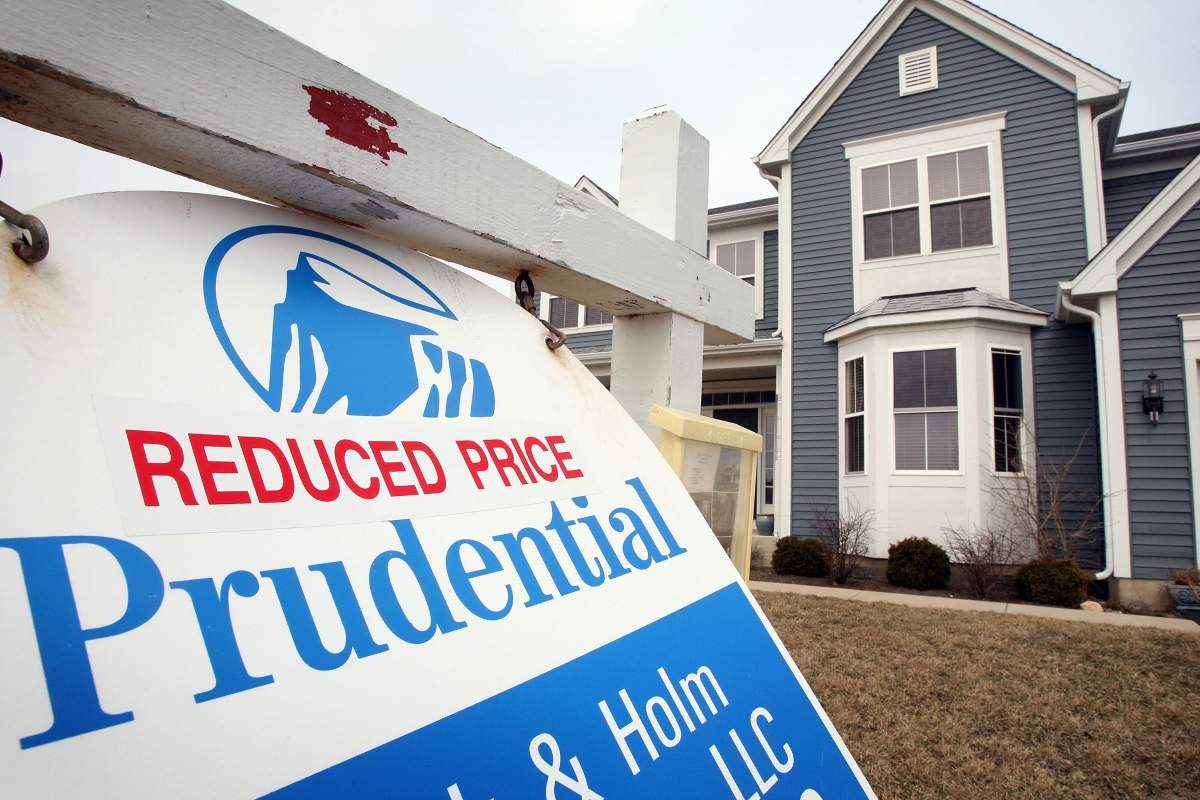OTTAWA – Nearly one in six Canadians would not be able to handle a $500 increase in their monthly mortgage payments, a new survey from the Bank of Montreal suggests.

According to the bank, 16 per cent of respondents said they would not be able to afford such an increase, while more than a quarter, or roughly 27 per cent, would need to review their budget.
Another 26 per cent said they would be concerned, but could probably handle it.
Such an increase would be generated in the case of a three percentage point hike in interest rates — from 2.75 per cent to 5.75 per cent — on a $300,000 mortgage with a 25-year amortization period.
Given that interest rates are likely to increase in the foreseeable future, the bank said there was no better time to put together a detailed debt management plan.
MORE: The Great Canadian Housing Boom
“The ultimate goal of most Canadians should be the elimination of debt, but the first step needs to be getting rid of bad debt, which has the potential to destabilize a household’s financial situation,” said Chris Buttigieg, senior manager of wealth planning strategy at BMO.

Get weekly money news
“A financial professional can help you avoid having your debt lead to long-term financial instability and work with you to develop a plan to sort out your balance sheet as quickly and efficiently as possible.”
- Canada’s grocery code of conduct is coming in 2026. What it means for you
- New citizenship rules now in effect for ‘Lost Canadians.’ What to know
- Ontario influenza ICU admissions up 127% in past week, hospital association warns
- Israel blocks Canadian delegation, including MPs, from entering West Bank
A report by Statistics Canada last month found the ratio of household credit market debt to disposable income climbed in the second quarter of 2015 to 164.6 per cent, up from 163.0 per cent in the first three months of the year.
That means Canadians owed nearly $1.65 in consumer credit and mortgage and non-mortgage loans for every dollar of disposable income.
The report by BMO’s Wealth Institute found that almost half of Canadians, 47 per cent, believed that the high level of debt in Canada has been influenced by soaring real estate values, while 40 per cent believed it has been influenced by low rates.
MORE: Cash crunch ‘inevitable’ for Canadian households deep in debt
Interest rates, including mortgage rates, have been near historic lows. The Bank of Canada has cut its key interest rate twice this year in an attempt to boost an economy hobbled by a sharp drop in commodity prices.
BMO noted that when interest rates are low it is a good time to make aggressive principal repayments on loans and its survey found that 35 per cent of those asked are looking to pay down their mortgage sooner.
“However, statistics have shown that debt service rates have not changed very much from the early 1990s, when interest rates were much higher,” the report said.
“It appears that many Canadians have used low interest rates to get larger loans on more expensive houses rather than to aggressively repay their debt.”
—
The online survey was conducted by ValidateIt for BMO from June 23 to 29, with a sample size of 1,014 Canadians.
The polling industry’s professional body, the Marketing Research and Intelligence Association, says online surveys cannot be assigned a margin of error because they do not randomly sample the population.





Comments